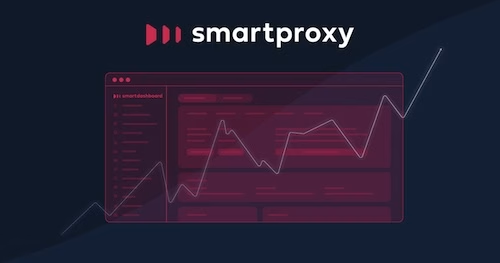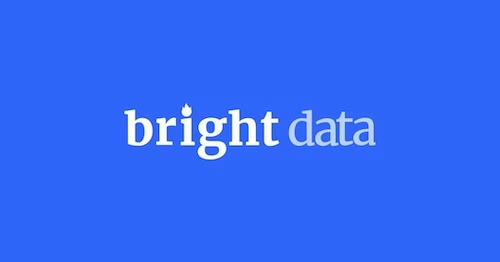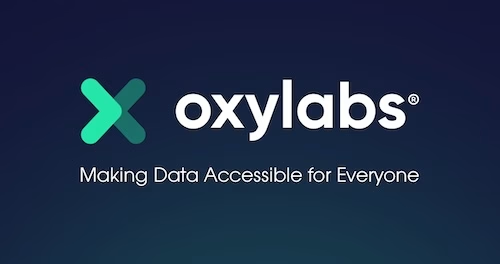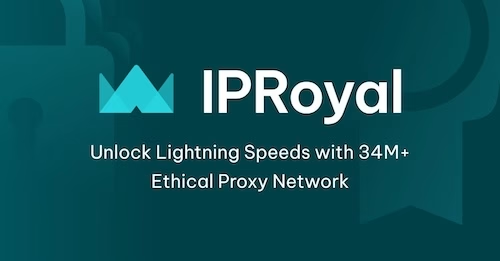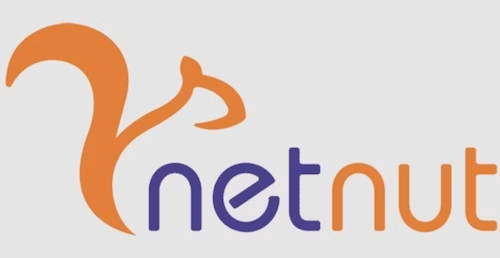Hey there! If you’ve ever tried your hand at web scraping, you know how vital proxies can be. I remember my first experience with scraping—exciting yet a bit daunting. The idea of gathering data from various websites for research or analysis is thrilling, but it can quickly become overwhelming if you’re blocked or throttled. This is where proxies come into play, acting as your secret weapon for successful data collection.
So, what exactly are proxies? In the simplest terms, a proxy acts as a middleman between your device and the internet. When you use a proxy, your requests to access websites are routed through another server. This masks your original IP address, allowing you to browse and collect data anonymously. It’s a game-changer for web scraping!
Now, let’s dive deeper into one specific type of proxy that I find particularly useful: affordable rotating residential proxies. These proxies are sourced from real residential IP addresses, which means they appear as regular users to the websites you’re scraping. This not only helps you avoid detection and IP bans but also gives you the flexibility to access a wider range of data. Imagine being able to scrape multiple pages without running into those frustrating blocks! It’s a dream come true for anyone looking to gather insights without the hassle.
In this article, I’m excited to share my top picks for the 5 best proxy services for affordable rotating residential proxies for web scraping. I’ve spent countless hours testing different services, and I can’t wait to share what I’ve learned with you. Whether you’re a seasoned scraper or just getting started, my goal is to help you find the right tools to make your data collection process smooth and efficient.
Table of Contents
Why Choose Rotating Residential Proxies?
When I first started exploring web scraping, I quickly learned that not all proxies are created equal. Enter rotating residential proxies—a game-changer for anyone serious about data collection. Let’s unpack what these are and why they can make your scraping endeavors much smoother.
Definition of Rotating Residential Proxies
So, what exactly are rotating residential proxies? Simply put, these are proxies that come from real residential IP addresses. They mimic the behavior of a regular internet user, which makes them incredibly valuable for scraping tasks.
Here’s how they work: when you connect to the internet through a rotating residential proxy, your requests are sent through a pool of residential IP addresses. Instead of using a single IP address for all your requests, the proxy service automatically rotates through these IPs at set intervals or after each request. This means that to the target website, it looks like different users are accessing the data, not just one person repeatedly hitting their servers.
I remember one project where I was trying to scrape data from a highly trafficked e-commerce site. Using a standard proxy, my requests were quickly flagged, and I was blocked after just a few attempts. However, once I switched to a rotating residential proxy, I could seamlessly gather the data I needed without encountering those frustrating barriers.
Benefits of Rotating Residential Proxies for Web Scraping
Now that we’ve defined what they are, let’s explore why rotating residential proxies are so beneficial for web scraping.
Bypassing IP Blocks and Restrictions
One of the biggest hurdles in web scraping is getting blocked by the target website. Many sites have measures in place to prevent excessive scraping, which often includes tracking IP addresses. When they see too many requests coming from one IP, they’ll block it, making it impossible to access their data.
This is where rotating residential proxies shine. Since these proxies cycle through a variety of IP addresses, it becomes much harder for websites to detect scraping activities. Your requests appear to be coming from different users in different locations, which helps you bypass those pesky blocks.
Real-World Scenarios
Let’s consider a few real-world scenarios where rotating residential proxies come in handy:
- Price Monitoring: If you’re tracking prices on multiple e-commerce sites, using a rotating residential proxy allows you to scrape data without getting blocked. You can continuously monitor changes without the fear of being flagged as a bot.
- Market Research: When gathering data for competitor analysis, it’s crucial to access information from various geographic locations. Rotating residential proxies can help you do this effectively, enabling you to gather localized data without raising suspicions.
- Social Media Scraping: If you’re looking to scrape data from social media platforms, rotating residential proxies can help you avoid rate limits. These platforms are strict about how many requests you can make, and using rotating proxies allows you to stay under the radar while still collecting valuable insights.
Advantages of Using Affordable Proxy Services
When it comes to web scraping, finding the right proxy service can feel like a daunting task, especially when you’re on a budget. But I’ve learned that affordable proxy services can be a game-changer for individuals and small businesses. Let’s dive into the advantages that make these services so appealing.
1. Cost-Effectiveness
I remember when I first started scraping data for a side project. My budget was tight, and I was on the lookout for tools that wouldn’t break the bank. This is where affordable proxy services came in handy.
Using an affordable proxy means you can access powerful tools without emptying your wallet. This is particularly beneficial for individuals and small businesses that may not have the financial resources to invest in high-end services.
Imagine you’re running a small online store and want to monitor your competitors’ prices. Investing in a high-cost proxy service could eat into your profits. Affordable options allow you to scrape data effectively while keeping your overhead low. You can gather the information you need without the stress of high monthly fees, giving you the freedom to focus on growing your business.
2. Performance and Reliability
Now, let’s address a common misconception: lower costs equal lower quality. That’s not necessarily true, especially when it comes to affordable proxy services.
I’ve used several affordable proxy providers, and to my surprise, many of them offer impressive performance and reliability. These services understand that their reputation depends on delivering quality. Many focus on building robust infrastructures that can handle multiple users and requests efficiently.
For instance, when I worked on a project that required heavy data scraping, I initially opted for a cheaper option just to test things out. I was pleasantly surprised to find that the service not only met my expectations but also allowed for seamless data collection without interruptions. My scraping tasks went smoothly, and I was able to gather valuable insights without any hiccups.
In my experience, many affordable proxy services provide features like:
- Good Speed: While they might not be the fastest on the market, many affordable services still offer respectable speeds that are more than adequate for most scraping tasks.
- Uptime: Reliable services ensure minimal downtime, so you can scrape data consistently without worrying about your proxy going offline.
- Customer Support: Many affordable options offer solid customer support, which is a huge plus if you encounter issues or need assistance.
Best Proxy Services for Affordable Rotating Residential Proxies for Web Scraping
When diving into web scraping, finding a reliable proxy service is essential. Over the years, I’ve experimented with various options, and I’ve narrowed down my favorites to five standout services that offer affordable rotating residential proxies. Each has its strengths, and I’m excited to share what I’ve learned from my experiences.
1. Decodo (SmartProxy)
Overview: Decodo (Smartproxy) is renowned for its extensive network and flexibility. With over 40 million residential IPs across 195 locations, it’s a fantastic choice for anyone needing reliable proxies.
- Features:
- Unlimited concurrent sessions for high-volume scraping.
- Rotating and sticky session options for flexibility.
- User-friendly dashboard for easy management.
- Pros:
- Fast response times, making scraping efficient.
- Excellent customer support ready to assist with any issues.
- Cons:
- The trial period is somewhat limited, which may hinder initial testing.
Personal Insight: I found Decodo (Smartproxy) particularly helpful when I needed to gather data from multiple regions simultaneously. The dashboard made managing my proxies a breeze!
2. Bright Data (formerly Luminati)
Overview: Bright Data is a leader in the proxy industry, offering an extensive network of over 72 million IPs. It’s well-suited for large-scale data scraping tasks.
- Features:
- Advanced targeting capabilities by country, city, or ISP.
- Comprehensive proxy management tools.
- Ethical IP sourcing practices.
- Pros:
- High success rates for complex scraping projects.
- Strong customer support that’s responsive to queries.
- Cons:
- The pricing model can be complicated, which might confuse new users.
Personal Insight: I appreciated the variety of targeting options with Bright Data. It allowed me to focus my scraping efforts where I needed the most data, enhancing my results.
3. Oxylabs
Overview: Oxylabs is known for its high-quality residential proxies and a vast collection of IPs, making it ideal for businesses focused on large-scale data collection.
- Features:
- Over 100 million IPs available globally.
- AI integration for efficient scraping processes.
- Dedicated account managers for premium customers.
- Pros:
- Reliable performance with excellent coverage.
- The service is designed with legal and ethical scraping in mind.
- Cons:
- Pricing may be on the higher side, which could deter smaller operations.
Personal Insight: Using Oxylabs was beneficial when I needed to scrape a significant amount of data for research. Their robust infrastructure ensured I faced minimal downtime.
4. IPRoyal
Overview: IPRoyal offers a great mix of affordability and functionality, featuring over 34 million ethically sourced IPs.
- Features:
- Unlimited concurrent connections with flexible rotation options.
- Detailed usage insights for better management.
- Sticky residential IPs available for longer sessions.
- Pros:
- No monthly commitments, allowing you to pay for what you use.
- High success rates, making it suitable for various scraping tasks.
- Cons:
- Limited unique IPs in certain regions might impact data diversity.
Personal Insight: I found IPRoyal particularly useful for projects where I needed to keep the same IP for extended periods. Their flexibility allowed me to adapt my scraping strategy on the fly.
5. NetNut
Overview: NetNut sources residential IPs directly from ISPs, ensuring stable and fast connections. It’s an excellent choice for businesses looking for reliability.
- Features:
- Efficient routing for reduced risk of blocks.
- Coverage in over 50 countries.
- Dedicated customer support for prompt assistance.
- Pros:
- Quick and reliable data access without needing to manage rotating proxies.
- Strong performance for consistent scraping.
- Cons:
- Fewer targeting options compared to some of the competitors.
Personal Insight: My experience with NetNut was positive, especially during high-traffic scraping tasks. The stability of the connections helped me gather data smoothly without interruptions.
Key Features to Look for in a Rotating Residential Proxy Service
Choosing the right rotating residential proxy service can feel overwhelming, especially with so many options out there. I remember my early days of web scraping, trying to figure out what I really needed from a proxy service. After some trial and error, I discovered a few key features that make a world of difference. Let’s explore these essential features together!
IP Pool Size and Diversity
The first thing you want to look at is the size and diversity of the IP pool. A large pool means more options for you, which is crucial for effective scraping. I once made the mistake of choosing a service with a limited number of IP addresses. It didn’t take long before my IP got blocked, and I was left frustrated.
When you have access to a diverse range of IPs, you can rotate between them seamlessly. This reduces the risk of getting detected by target websites. Ideally, the service should provide thousands of IP addresses from different regions and ISPs. This way, you can collect data from various locations without raising any flags.
Speed and Performance Metrics
Next up is speed. Let’s be honest: nobody wants to deal with slow proxies. When I first started scraping, I often found myself waiting around while data loaded. It was not only frustrating but also inefficient.
Look for services that offer high-speed connections and provide performance metrics. Many providers share data on their speeds and uptime, which helps you gauge how well they’ll meet your needs. Fast proxies ensure that your scraping tasks are completed in a timely manner, allowing you to get the information you need without unnecessary delays.
Geo-Targeting Options
Geo-targeting is another fantastic feature to consider. Depending on your project, you may need to collect data from specific geographic locations. I recall a project where I was tasked with scraping reviews from different countries. Having the ability to select IPs from specific locations made all the difference.
A good proxy service should allow you to filter IPs based on country, region, or even city. This flexibility can be invaluable, especially when gathering localized data or when dealing with region-specific restrictions on certain websites.
Session Management Capabilities
Session management can be a real game-changer, particularly if you’re working with sites that require logins. Many proxy services allow you to maintain the same IP address for a particular session, which helps in avoiding repeated verification challenges.
For example, if you’re scraping a site that requires authentication, you’ll want to keep your session alive. Look for services that offer sticky sessions or other features that help maintain a continuous connection. This will make your scraping process much smoother and less prone to interruptions.
Customer Support and Documentation
Last but certainly not least, consider the quality of customer support and documentation. In my experience, having access to knowledgeable support can save you a lot of headaches. There were times when I faced challenges, and a quick chat with customer service helped me resolve issues promptly.
Choose a service that provides comprehensive documentation and tutorials. This can be particularly helpful if you’re new to web scraping. A solid support system can guide you through setup, troubleshooting, and anything else you might encounter.
Cost Analysis of Rotating Residential Proxies
When considering a rotating residential proxy service, understanding the costs involved is crucial. I remember my own experience navigating the various pricing models and trying to find the best fit for my budget. In this section, we’ll break down typical pricing structures and compare the costs across different proxy services. Let’s get into it!
1. Typical Pricing Structures
There are generally two main pricing models for rotating residential proxies: pay-per-use and subscription. Each has its advantages, and the right choice largely depends on your scraping needs.
Pay-Per-Use Model: In the pay-per-use model, you are charged based on the number of requests you make or the amount of data you consume. This model can be a great option if you have fluctuating scraping needs. For example, if you’re working on a specific project that requires heavy scraping for a short period, this model allows you to pay only for what you use.
I found this model particularly helpful when I was conducting a one-time analysis of market trends. I didn’t want to commit to a long-term plan, so paying per request made it easier to manage my budget while still accessing the data I needed.
Subscription Model: The subscription model involves paying a set fee for a specified period, usually monthly. This option is beneficial if you have ongoing scraping tasks or need regular access to data. With a subscription, you often get a certain number of requests included each month, along with features like dedicated IPs or higher bandwidth limits.
During a project where I needed to scrape data weekly, switching to a subscription model made sense. I appreciated the predictability of costs and the peace of mind that came with knowing I had the resources I needed without worrying about exceeding a request limit.
2. Cost Comparison Between Different Proxy Services
Now that we’ve covered the pricing structures, let’s talk about comparing costs across different proxy services. When looking at different providers, here are some factors to consider:
Features vs. Cost: Not all proxy services are created equal. Some may offer more extensive features, such as advanced geo-targeting or better session management. When comparing costs, assess what features are included. Sometimes, spending a little more can provide significant value in terms of performance and reliability.
Customer Support: The quality of customer support can vary significantly between services. If you run into issues while scraping, having responsive support can save you time and headaches. I’ve experienced situations where strong customer support made a difference in my ability to troubleshoot effectively.
Trial Periods and Money-Back Guarantees: Many proxy services offer trial periods or money-back guarantees. This is a fantastic way to test out a service without a long-term commitment. When I was evaluating different options, taking advantage of trial periods helped me determine which service met my needs best without any financial risk.
Long-Term vs. Short-Term Needs: Consider whether your scraping needs are short-term or ongoing. If you only need a proxy service for a brief project, a pay-per-use model might be the most cost-effective. However, if you anticipate continuous scraping tasks, a subscription might provide better long-term value.
Conclusion
As we wrap up this discussion on affordable rotating residential proxies for web scraping, I hope you found the insights valuable and practical. Choosing the right proxy service can significantly impact your scraping success and efficiency. Here are the key points we covered:
- Importance of Proxies: Proxies are essential tools in web scraping, allowing you to bypass restrictions, maintain anonymity, and avoid IP bans. They help ensure a smooth data collection process, especially when dealing with challenging websites.
- Top Proxy Services: We explored five of the best proxy services—Smartproxy, Bright Data, Oxylabs, IPRoyal, and NetNut. Each service offers unique features, strengths, and potential drawbacks, making it crucial to choose one that aligns with your specific scraping needs.
- Key Features to Consider: When selecting a proxy service, consider factors like IP pool size, speed, geo-targeting options, session management capabilities, and customer support. These features can make a significant difference in your overall experience and the success of your scraping projects.
- Cost-Effectiveness: Affordable options are available that provide robust features without breaking the bank. Understanding the pricing models—whether pay-per-use or subscription—can help you find the best fit for your budget.
In my experience, the right proxy service not only facilitates effective data collection but also saves you time and resources in the long run. As you embark on your web scraping journey, take the time to evaluate your specific needs and choose a service that offers the right combination of performance, reliability, and support.
Take the Next Step in Your Web Scraping Journey
Now that we’ve covered the ins and outs of rotating residential proxies for web scraping, it’s time to take action! I encourage you to take a step back and evaluate your specific web scraping requirements. Ask yourself a few key questions:
- What data are you trying to collect?
- How frequently will you be scraping?
- Do you need geo-targeting options for localized data?
Understanding your needs is crucial for selecting the right proxy service. It can be tempting to jump straight into using a service, but taking the time to clarify your objectives will save you headaches down the line.
I also suggest trying out several proxy services to find the one that fits your needs best. Most providers offer trial periods or money-back guarantees, so you can test their services without a long-term commitment. This way, you can explore features like speed, reliability, and customer support before making a decision.
In my experience, experimenting with different services helped me discover what worked best for my projects. It’s like trying on different outfits until you find the perfect fit. You’ll gain insights into how each service operates and which features are most beneficial for your specific tasks.
So, go ahead! Dive in, explore your options, and don’t hesitate to share your experiences or questions in the comments below. I’m here to help, and I’d love to hear how your web scraping journey unfolds!

